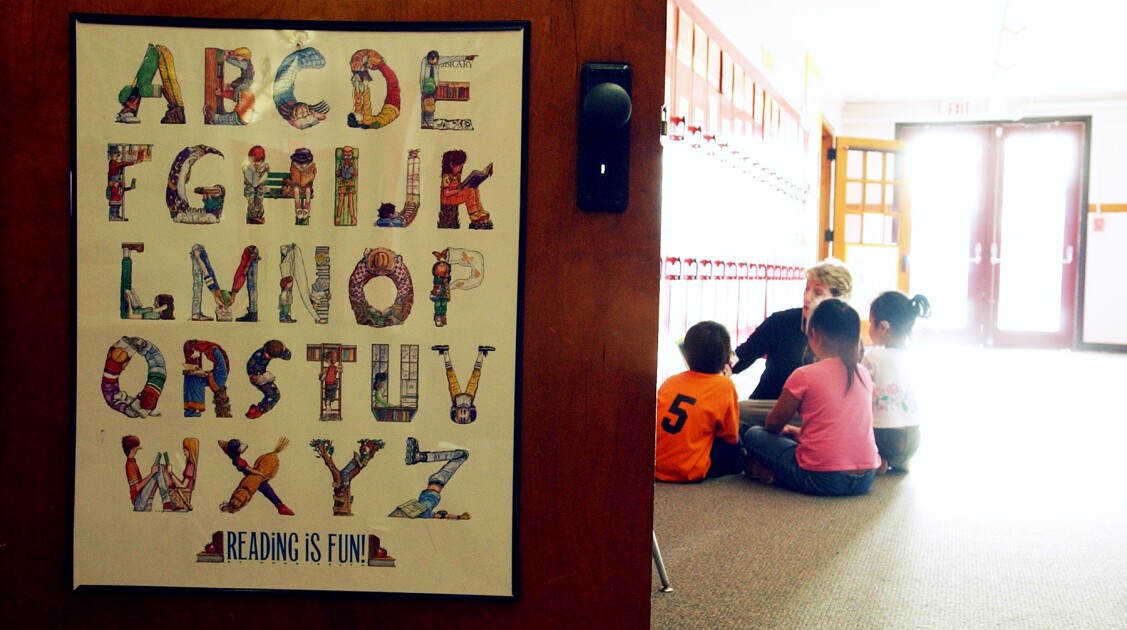Includes updates and/or revisions.
New Jersey lawmakers approved a new school funding formula Jan. 7 that would give more money to needy districts outside the state’s large cities, a milestone that Gov. Jon Corzine noted in his State of the State speech a day later.
The school funding plan, a cornerstone of the Democratic governor’s education agenda, cleared the legislature on the last day of its 2006-07 legislative session, only hours before the 2008-09 session was to begin.
But the spending formula still faces significant hurdles, including passing muster with the state supreme court, which has been overseeing how the state spends education money in its poorest urban districts as part of a long-running legal case.
Addressing both houses of the legislature on Jan. 8, the first day of the new legislative session, Mr. Corzine commended lawmakers for approving the plan. When he outlined it on Nov. 30, he had urged them to approve it before the 2006-07 session ended. (“N.J. Governor Seeks to Overhaul School Financing,” Dec. 12, 2007.)
“This new formula will improve all of our schools,” he said in his State of the State address to the new legislature. “It will help unify our citizens. And it will demonstrate to the public that government can work to provide for the common good.”
Some observers doubted that the school finance proposal could be adopted on such a tight timeline, and critics of the plan feared the accelerated schedule could cheat substantive consideration of a complex subject. But ultimately it passed 41-36 in the Assembly, the lower house, and 21-8 in the Senate.
A Senate stalemate over the vote was broken, and a majority of votes obtained, by the governor’s promise to add $20 million in special education funding to the fiscal 2009 budget. Some districts are concerned about the impact of a part of the plan that shifts a greater share of special education costs to districts that can afford to pay more.
All six African-American Democratic senators opposed the plan, fearing that poor districts they represent could lose aid and be forced to cut programs. Fellow Democrats who sought to get the plan passed had to turn to Republicans for support to break the stalemate.
Gov. Corzine’s plan eliminates the special-needs-district designation set up under the Abbott v. Burke finance case, which won a guarantee of funding levels for the poorest urban districts equal to those of the state’s richest districts. Instead, one formula would be applied the same way in all 616 of the state’s school districts. A base amount would be set for each student and adjusted for needs such as poverty and a district’s tax base.
Key Steps Remain
The funding plan would provide $7.8 billion in precollegiate spending in fiscal 2009, an increase of $532 million, or 7 percent. It would guarantee districts hikes of 2 percent to 20 percent and shift greater shares of aid to suburban districts that have large proportions of disadvantaged children. Most of the 31 so-called Abbott districts would get the minimum 2 percent increase.
Even with legislative approval, the new funding formula’s implementation is hardly a given.
The state attorney general issued an opinion Jan. 4 that the plan met constitutional requirements to provide the state’s children with a “thorough and efficient” education. But it still must get the approval of the New Jersey Supreme Court, which presides over the Abbott case.
Lawmakers also will have to grapple with where to get the money for the planned increase. The state, with a fiscal 2008 budget of $33.5 billion, projects a $3 billion shortfall in fiscal 2009. Its accumulated debts run so deep that Gov. Corzine, a former finance executive, made rebuilding the state’s fiscal health the sole focus of his State of the State speech.
He told lawmakers he will propose legislation to freeze overall state spending at this year’s level and ensure that future years’ spending cannot outstrip recurring revenue growth. To help pay down debt, he is proposing a 50 percent increase in highway tolls in 2010, and three identical hikes in the following 12 years.
The New Jersey School Boards Association ultimately backed the governor’s school funding method, since it marked the first increase for schools after six years of flat funding. But its leaders said the group would continue to press for changes to aspects that it opposes, such as a requirement that some districts deflect a portion of their aid hikes to their municipalities for property-tax relief if the state deems them to be spending above its established “adequacy level.”








